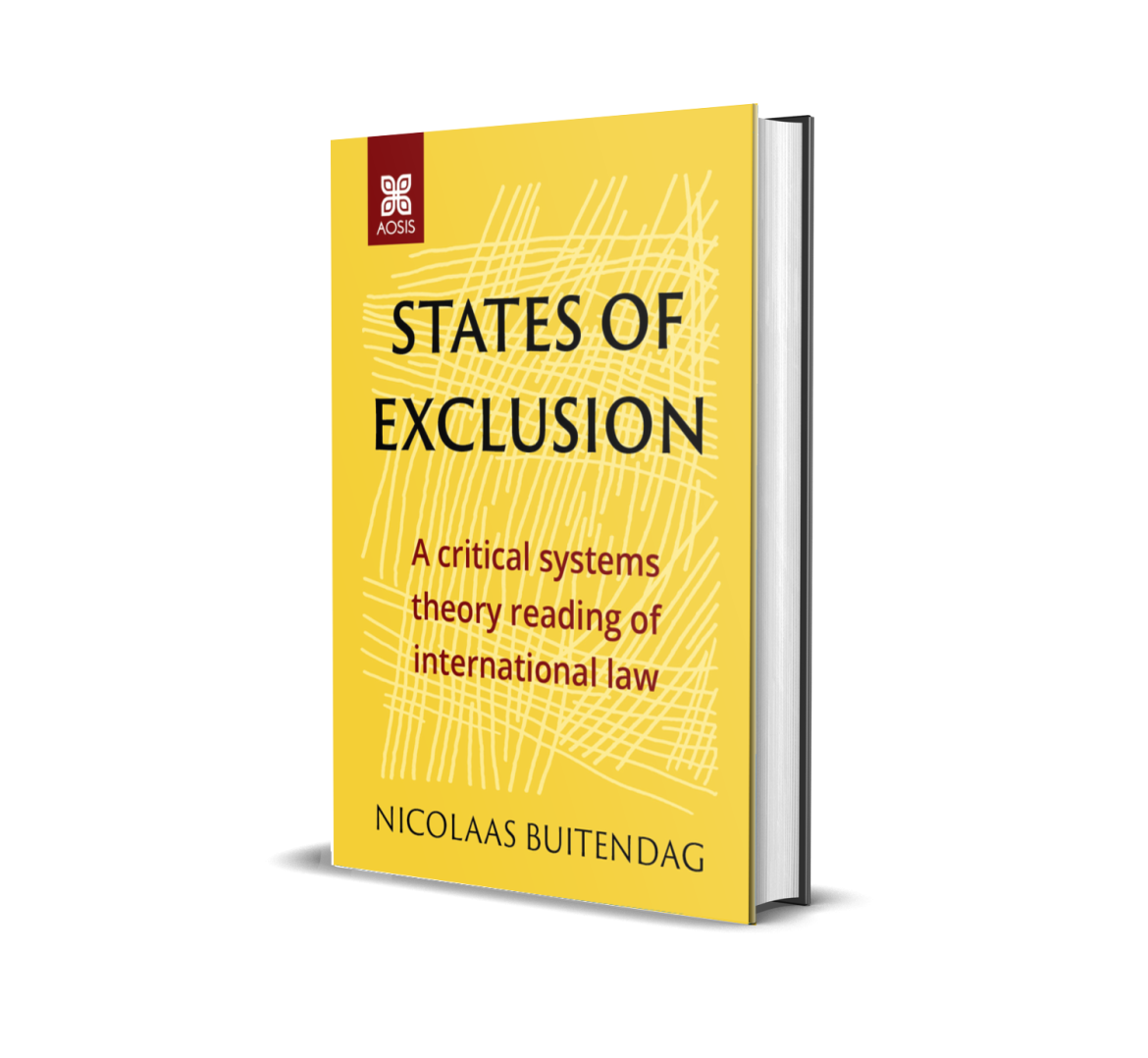States of exclusion: A critical systems theory reading of international law is published by AOSIS Scholarly Books.
The theoretical underpinnings of public international law have taken the sovereign status of the nation-state for granted since the beginning of the modern era. After centuries of evolution in legal and political thought, the state’s definition as a bounded territorial unit has been strictly codified. The legal development of the nation-state was an ideological project informed by extra-legal considerations. Additionally, the ever-narrowing scope of the juridical idea of sovereignty functioned as a boundary mechanism instrumental in colonising Africa and other regions. While international law claims universal liberalism today, the current system based on sovereign nation-states represents not social inclusion but fierce and dangerous exclusion.
The central thesis of this book is that the development of legal sovereignty was, rather than part of the modernist progress narrative, a historically contingent evolutionary regression. While other social systems such as economics and science became globalised, politics and law counterintuitively became more territorialised. It is argued that the nation-state today is not only anachronistic but is dangerously ill-equipped for facing international problems such as the climate crisis or global pandemics. Finally, it also leaves African states and many other formerly-colonised territories at a particular disadvantage by regulating their political practices into a predefined mould.
Copyright (c) 2022 Nicolaas Buitendag (Author)
It is not easy to reverse political history rationally, convincingly and theoretically compellingly. Yet, this is precisely what this book manages: if national sovereignty is but an evolutionary regression rather than the culmination of the concerted political, anthropological and legal narratives we have been led to think so far, then how do we imagine this post-sovereign world? With a thoroughly decolonial reading of Niklas Luhmann’s systems theory, Buitendag employs ‘power’ and ‘truth’ as the main vectors around which he builds the critical autopoietic theory needed to comprehend not only what is but also what could and still can become of the nation-state. The book ends with a tour-de-force discussion of mapping as a technique of imperialist establishment but also a much-needed delimiting of power. This book could potentially revolutionise our way of thinking not only about systems theory but profoundly too, about international relations, history and global politics.
Prof. Andreas Philippopoulos-Mihalopoulos, Director of the Westminster Law and Theory Lab, University of Westminster, London, United Kingdom

